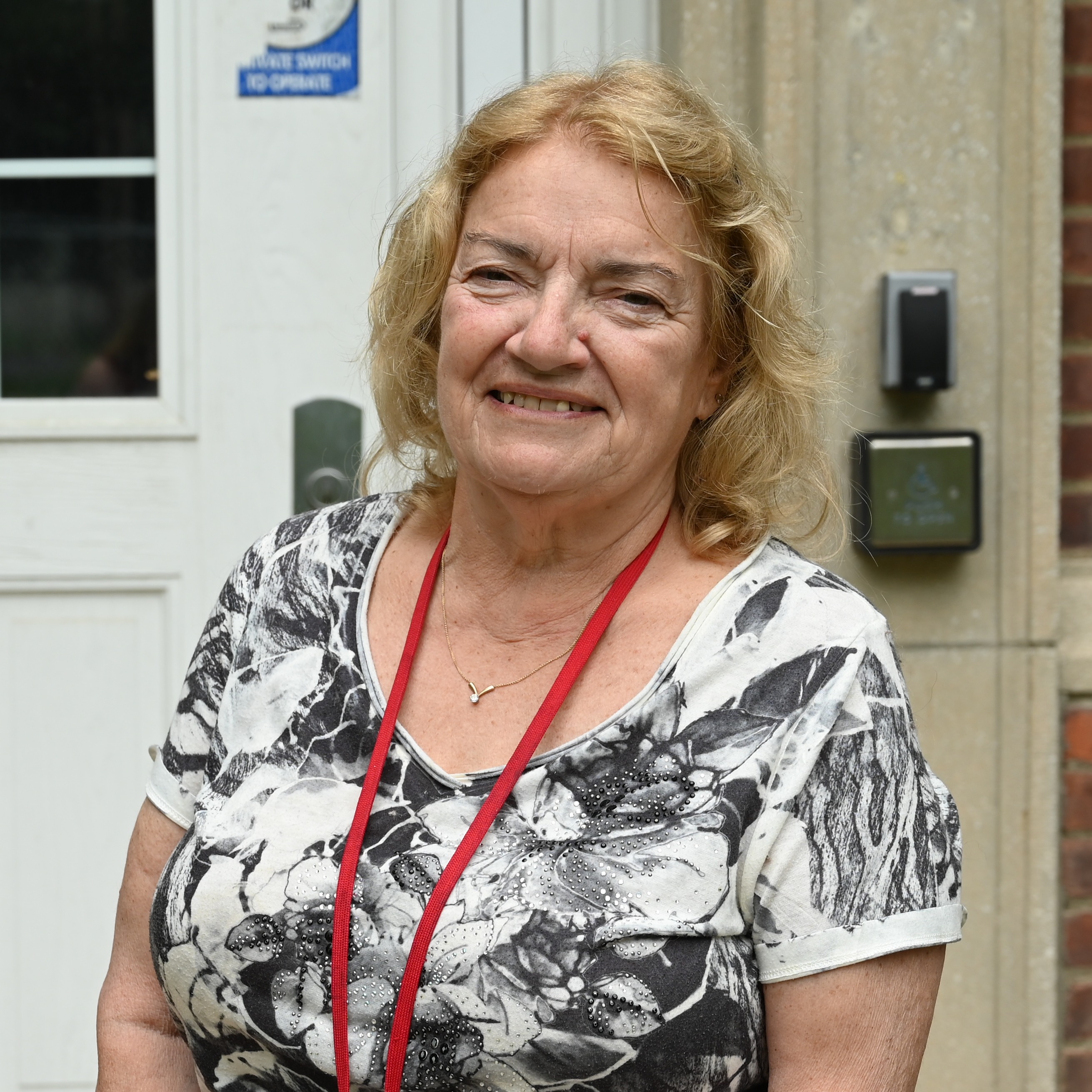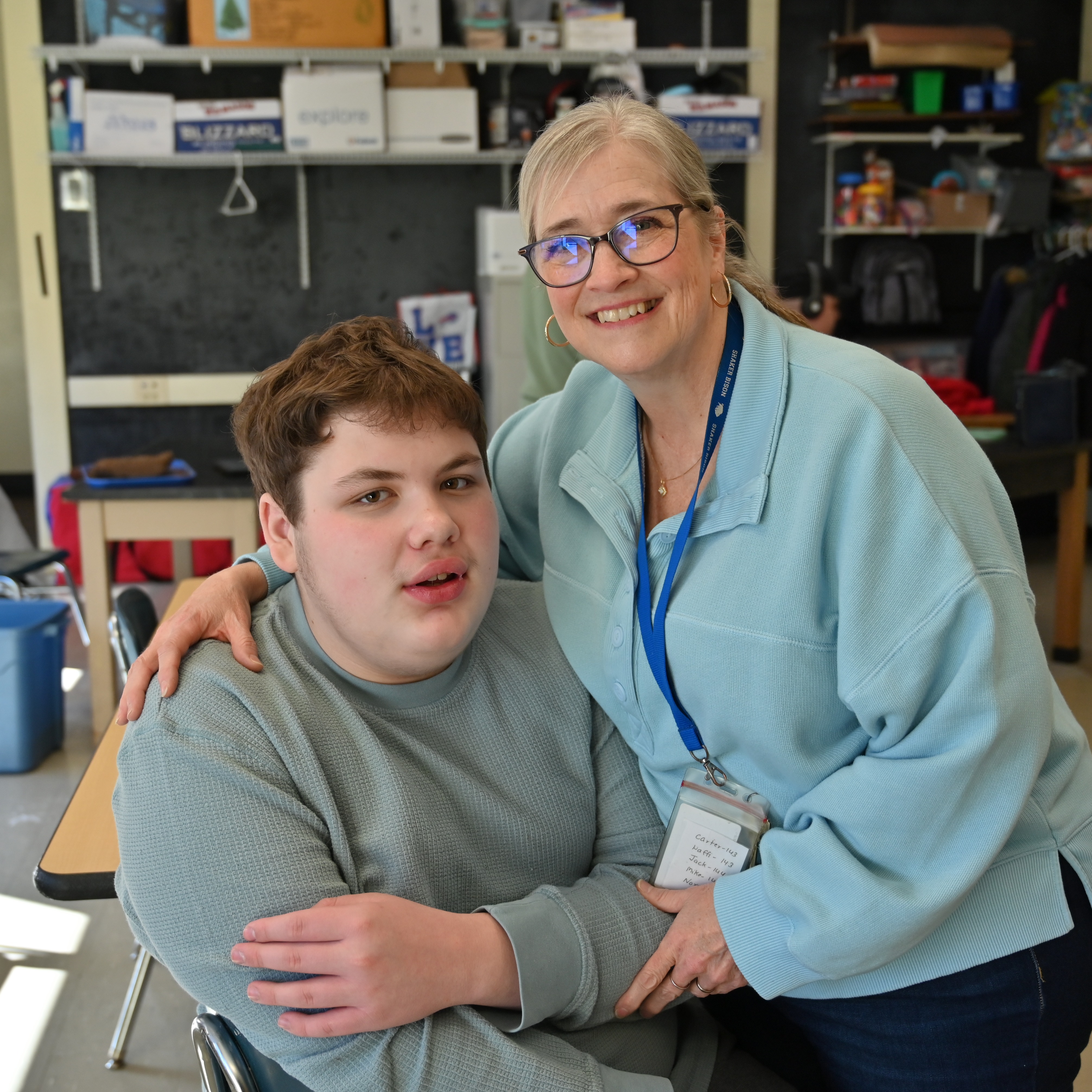
Superintendent's Art Gallery
Superintendent's Art Gallery
North colonie staff
Spotlight

“Our district always is willing to adapt and change and it’s always for the kids' best interest… Every year you come in as a teacher and there’s always a new point of emphasis. It’s just a really supportive place and I can’t imagine being anywhere else.”
- GREG SHEELER, Physical Education Teacher and Football Coach

“The people that I work with–my team, my special education team, the people in the FACS department and the whole Career & Technical Education department–are totally supportive of each other. They’re like a family, I love them.”
- KAREN DESORBO, FACS Teacher at SHS 27 Years with NCCSD

“Helping the kids, teaching the kids. Talking to the kids - it’s just fun and all about being a people person. It’s a very rewarding job, because it benefits the kids.”
- DEWAYNE CRAWFORD, SHS Safety/Security Monitor

“Bringing a smile to a kid's face is the most rewarding thing anyone can do. In a school educational environment, it is the best. If you can make someone's day, it goes a long way. Being a safety monitor, I take pride in keeping everyone safe. These kids are my kids too"
- CHRIS BOBER, SMS Safety/Security Monitor

“The most rewarding part of my job is providing support and helping others, whether it’s assisting staff and parents directly or connecting them with someone who can.”
- KATHY HOLDEN, CO SENIOR OFFICE COORDINATOR

“Really enjoy interacting with the kids when I can. The teachers are like my second family. The staff here is really like my second family. We support each other through good and bad and I think that’s why I just feel very close to everybody.”
- MARYANN PELLETIER, LO CLERICAL

“It’s been a good ride here. I’ve worked with a lot of good people and that’s why I’m still here until almost 70.”
- PAM HELD, CO PURCHASING AGENT

“Greeting the visitors and staff, and students, and making them feel welcome.”
- NANCY MASON, CO RECEPTIONIST

"I feel like our mission at North Colonie really aligns with my teaching practices... We have such a diverse group of students here, which I think is amazing."
- LAURA NADLER, LR KINDERGARTEN TEACHER

"Just continuing to fight for equity for all students and just making sure if we see something, we say something. And I always say all students should have access to all things. Really the equity, accessibility and inclusion are all what I'm working for here."
- JULIE TORRE, FF SPECIAL EDUCATION TEACHER

"Knowing that I've made a difference, whether it's big or small, is the most amazing part of my job."
- MONICA SMIALEK, SHS AIDE

"When I first started, one of my old DOT Inspectors said to work on a bus like my kids were riding on it. So that's how I've always looked at working on buses."
- NCCSD BUS MECHANIC TEAM

“It’s just a great school district. I tell the student teachers that come through that this is kind of a dream job. When you get a job at a district like this, you should really count your blessings because it’s few and far between."
- BRIAN AUSTIN, SHS Music Teacher

"I just love the middle school. I love the energy and the chaos of middle school and the kids have the type of motivation and that interest level still at this age which I love"
- NICOLE WEIMER, SMS Librarian

“I just love working with students. Especially with computer science, I’m teaching them something brand new. I just love that. I can see when they’re actually getting something and when they really get into it.”
- CARM AVELLINO, SHS Computer Science & Math Teacher

"I truly value being part of a district that actively honors and validates our students' multicultural and multilingual identities through its programs and practices.”
- AMI HWANG, SHS ENL Teacher

“I would say the most rewarding part of my job is being a part of my families’ journeys... I do see it as a privilege to be in this position where I am one of the first faces that welcome them.”
- LISA COONS, BC ENL Teacher

“I feel like every staff member matters at North Colonie.”
- AMANDA CUTTER, Asst. Director of Transportation

“It’s actually really rewarding when kids don’t need to come to reading anymore. The kids are just so proud of themselves. It’s great just seeing that little light go off in their head, when they can understand and do things they couldn’t before.”
- JOHANNA DENNISTON, SMS Reading Specialist

"That would be the best thing, running into people you see down the road that you’ve had some impact or influence in their life and you didn’t know you did.”
- ARNEL JOYNER, SHS School Counselor
